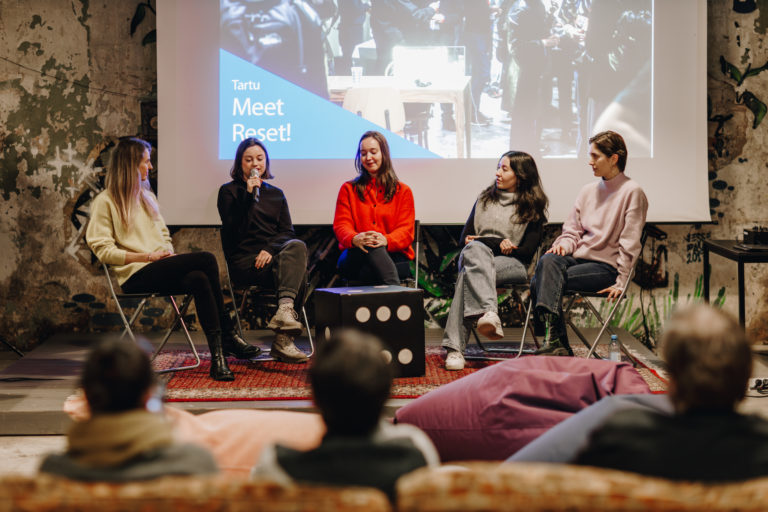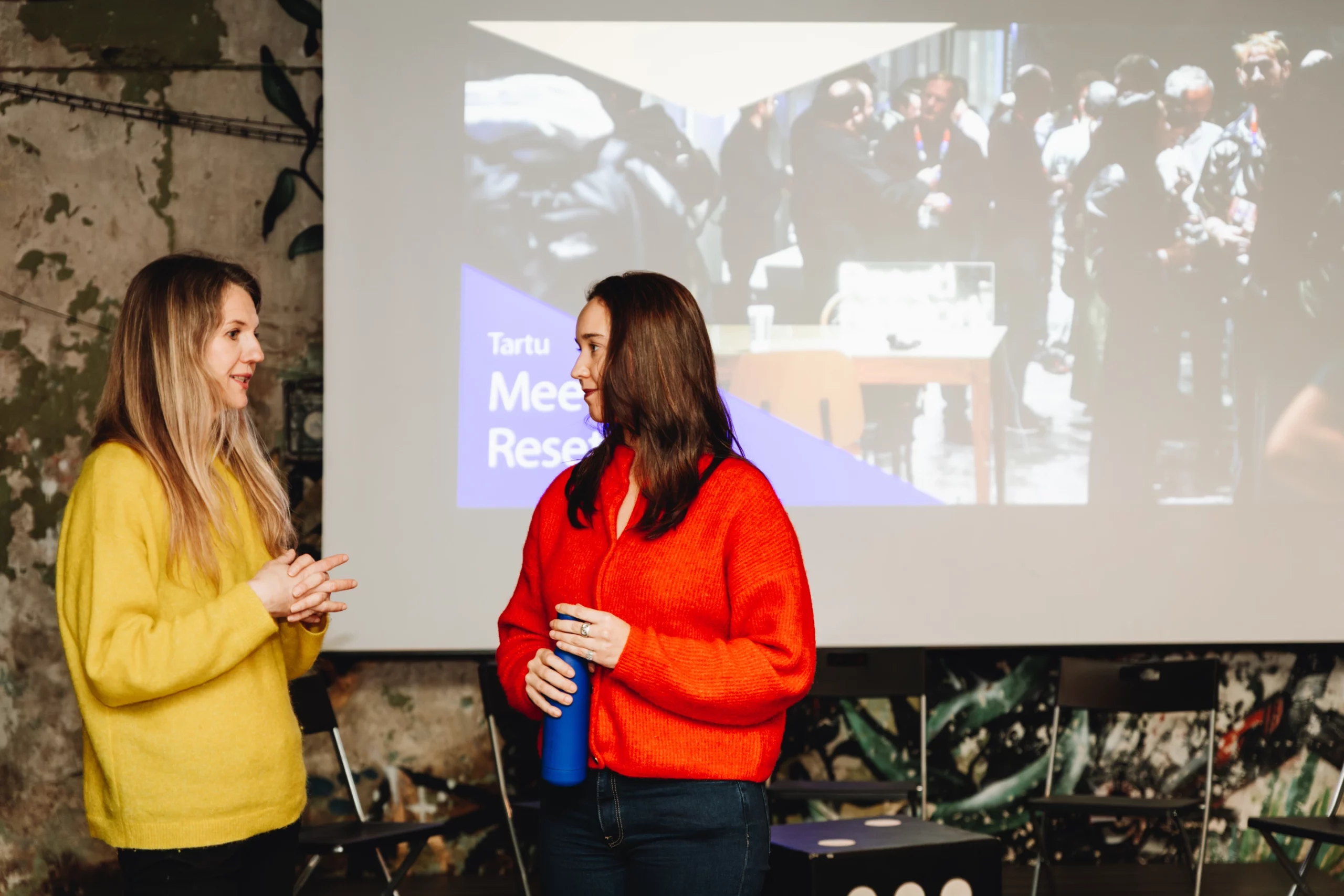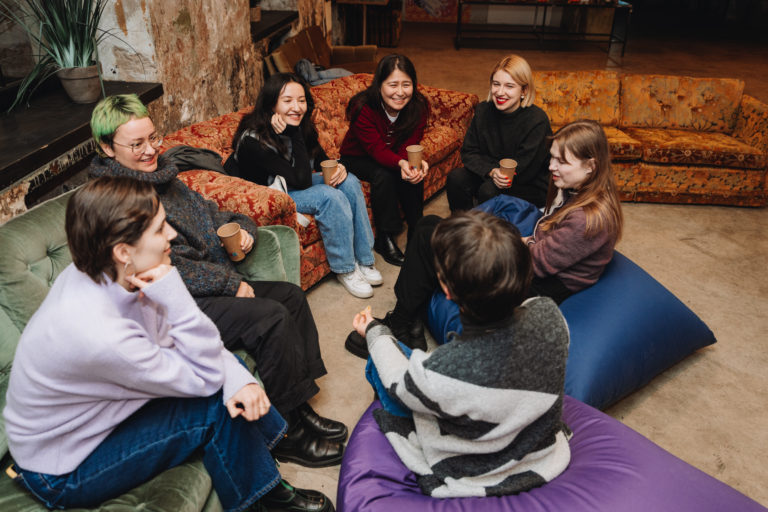Fostering diversity of expression and encouraging innovation through the support of European independent art is crucial, and significantly contributes to each territory's economic growth. Despite this importance, independent artists grapple with financial constraints, bureaucracy, and censorship, navigating the delicate balance between artistic freedom and societal norms.
Recognising these challenges, De Structura & the Reset! network organised a collaborative gathering in Tartu from February 23rd to 25th, 2024, bringing together seven European independent culture and media organisations. The purpose was to facilitate dialogue, share best practices, and address key issues related to the independence and sustainability of cultural and media organisations across Europe.
This article delves into the current state of independent art in Europe, highlighting the challenges discussed during the event in 2024. It also explores potential solutions proposed by participants to address the pressing issues faced by the independent cultural sector.
Exploring Art Independence: Perspectives from European Art Organisations
The significance of independent art lies in its ability to foster a diverse range of voices, pushing boundaries, and challenging societal norms. Independent artists often navigate their unique paths, unburdened by commercial expectations or state-controlled agendas. This dynamic within the independent art sector served as the catalyst, bringing participants together at the De Structura & Reset! network event.

© Luisa Greta Vilo (@stuudiokolm)
Organisers of the event, Anastasia Lemberg-Lvova and Katerina Lipovka, explain why they decided to take on such an initiative: “As an international project working with many international cultural organisations, De Structura saw an opportunity to design an event that would bring together cultural players from different countries and focus on a broader range of topics. We saw the value in intercultural dialogue and finding solutions to common problems on a more global and profound level. This kind of project required more time and effort, so a three-day event format was proposed. From one perspective, the goal was to involve Reset! members while also attracting new potential members and local decision-makers.”
At the event European independent art organisations gathered to exchange their unique experiences and diverse perspectives on the prevailing state of independent art:
- Publics, Helsinki: PUBLICS, located in Vallila, Helsinki, is a curatorial agency renowned for its specialised library, event space, and reading room.
- Improper Walls, Vienna: Established in 2014, Improper Walls functions as a multidisciplinary, intercultural art platform on a mission to redefine art and cultural curation by acknowledging the social and cultural dimensions inherent in both artworks and curatorial endeavours.
- Liget Gallery, Budapest: Budapest-based non-profit gallery focusing on ecological thinking, intermedia art, and women artists.
- TAC, Eindhoven: TAC is a cultural incubator and meeting place on a mission to give makers from all disciplines the opportunity to develop and present themselves.
- Etc, Ljubljana: The project focuses on showcasing emerging arts from the Baltics to the Balkans, presenting artists through an annual magazine and associated events throughout the year.
- Lazy Women, Budapest: Lazy Women is an open platform created by young women to amplify the voices of those identifying with womanhood all over the world.
Reflecting on the event, the Improper Walls coordinators, for example, highlighted the importance of articulating the purpose of their work, understanding common struggles, emphasising resilience and non-conformity to standards, and maintaining a clear mission of independence from government or institutional dependence. They also expressed solidarity in sharing similar struggles and missions within the diverse artistic community.
The Etc project coordinators found attending the event to be a valuable experience, providing them with meaningful connections to fellow participants, a realisation that others face similar challenges, and the understanding that these issues transcend geographical boundaries. The participants discovered shared concerns and common ground within the diverse group attending the event.
Challenges Faced by Independent Artists in Europe in 2024
The main challenges independent artists face in 2024 encompass financial stability, bureaucratic complexities in grant applications, and budget allocations. Here’re more details on the challenges:
- Financial Stability: Securing sustainable funding while providing opportunities for artists is paramount. Dependence on institutions hinders self-funded endeavours.
- Grant Application Bureaucracy: Unclear beneficiaries and transparency issues pose hurdles. Restrictions, bureaucracy, and fund dispersal delays amplify pressure for instant outcomes, hindering long-term collaborations.
- Grant Management: Independent artistic organisations struggle with managing turnover expectations, personnel expenses, and time-consuming deliverables. Mobility challenges and issues with consultant dependency weigh heavily on these organisations.
- State Budget Allocation: Distributing state budgets involves considerations for urban development and incentives for galleries and artists. Allocating income tax to public interest organisations adds complexity.
- Funding Reductions in Cultural Sector: Cuts to art and culture funding result from economic downturns, budget constraints, and shifting political priorities. Varying perceptions of arts' value influence funding decisions.
- Communicating Independent Art's Value: Highlighting art's role in bolstering international relations, generating tourism revenue, and contributing to urban development is essential. Demonstrating its significance as an economic, cultural, and diplomatic driver is crucial.


© Luisa Greta Vilo (@stuudiokolm)
Exploring Art Independence: Perspectives from European Art Organisations
The significance of independent art lies in its ability to foster a diverse range of voices, pushing boundaries, and challenging societal norms. Independent artists often navigate their unique paths, unburdened by commercial expectations or state-controlled agendas. This dynamic within the independent art sector served as the catalyst, bringing participants together at the De Structura & Reset! network event.
Proposals for Strengthening the Independent Cultural Sector
Addressing these challenges in the independent cultural sector is crucial for fostering a thriving and sustainable independent art sector.
Participants of the De Structura & Reset! network event focused on two areas in order to support the vibrant ecosystem of independent cultural and media entities:
- Allocate a minimum of 50% of the grant budget for compensating working hours, ensuring that the remuneration for labour, including design/development encompassing artistic research and trans-disciplinary innovation, is not overshadowed by other activity-related costs. Emphasise the integration of research as a distinct work package within the grant application.
- Provide grants for art production aimed at facilitating the participation of international artists in a series of exhibitions organised by a single institution within one country, each exhibition occurring at different time periods. Implement a funding structure based on the Creative Europe guidelines, with small-scale cash grants ranging from 30k to 60k euros. This grant should support artistic production for a single cycle program, involving international artists, guest curators, and writers. Funding should cover fees for participants, production costs of artworks, expenses related to the exhibition as a whole, and support for public programming initiatives.
Addressing these challenges will significantly improve the state of affairs in the independent cultural sector.
Firstly, by creating more engaging content tailored to the public, exhibitions will become more meaningful and accessible, fostering a deeper connection with diverse audiences. Secondly, by providing better support for artists, institutions can serve as platforms for artistic growth and development, contributing to a thriving cultural ecosystem. Moreover, addressing issues such as unpaid internships and exploitative labour practices will ensure equality of opportunity within the sector, fostering a more inclusive and sustainable environment. Lastly, by guaranteeing minimum pay and addressing financial insecurities, organisations can focus on their primary missions of art production, internationalisation, and community engagement, eliminating the need for external funding dependencies.
Initiatives like the De Structura & Reset! gathering in Tartu helps in addressing such challenges faced by independent cultural and artistic organisations. As Anastasia Lemberg-Lvova and Katerina Lipovka comment: “De Structura aims to bring forward the projects independent artists create, make their ideas heard by institutions and decision makers of the sector and to build connections between art professionals and the audience to facilitate collective action towards positive change.”
Empowering Independent Art: Key Takeaway
In Europe, independent art organisations stand as a vibrant testament to creativity and individual expression, enriching cultural landscapes and challenging societal norms. Despite its significance, 2024 brought forth critical challenges: financial constraints, bureaucratic hurdles, and dwindling support.
However, initiatives like the recent De Structura & Reset! gathering in Tartu underscored a collective commitment to address these issues. Now, more than ever, there's a call to action to sustain and champion independent artistic organisations. By allocating adequate funding, streamlining bureaucratic processes, and advocating for the intrinsic value of independent art, we can foster a resilient and inclusive cultural sector.
Let's continue to support and recognise the invaluable contributions of independent cultural and artistic organisations across Europe!
About the author:
Polina Medvedieva is a cultural enthusiast and a member of the European Youth Parliament, a politically unbound non-profit organisation, which encourages European youth to actively engage in citizenship and cultural understanding.

